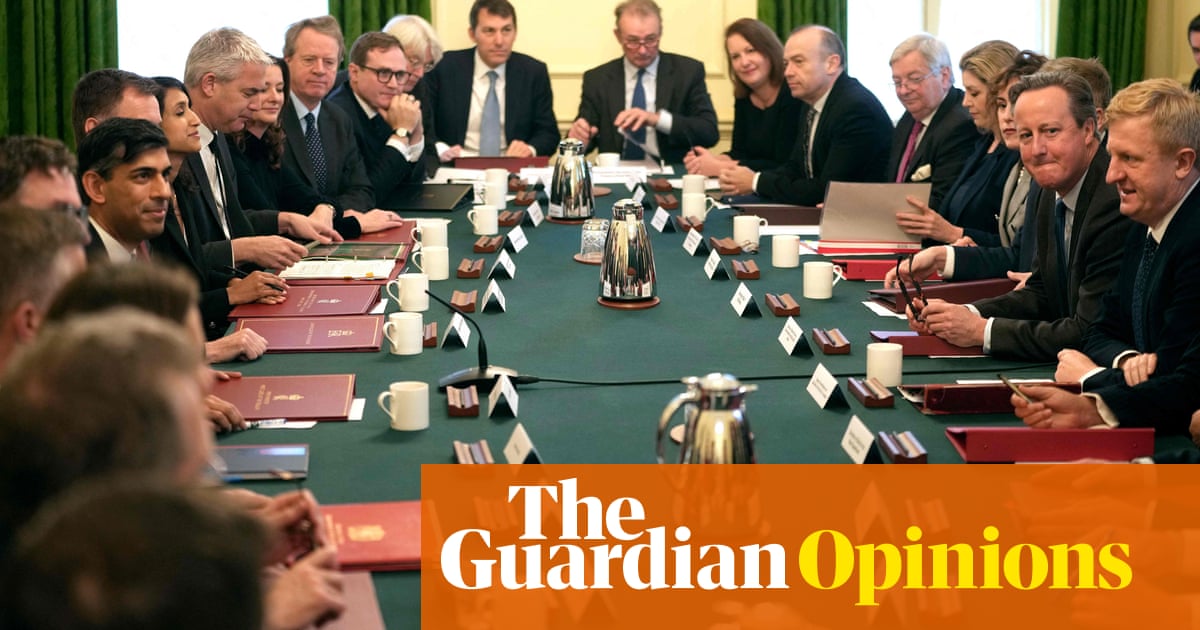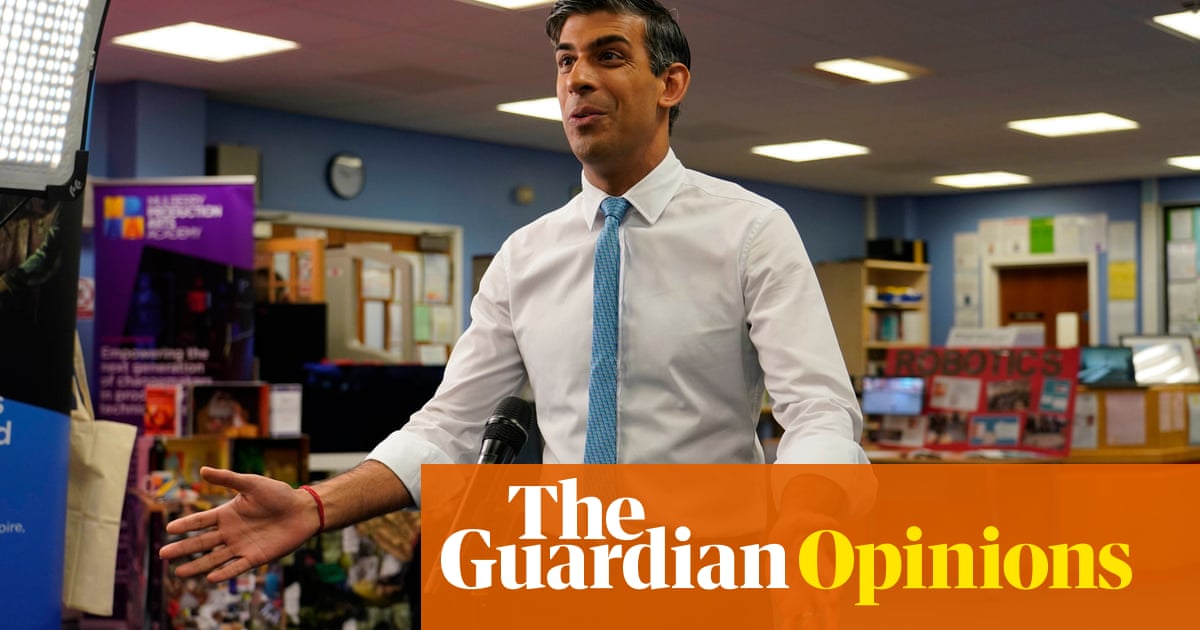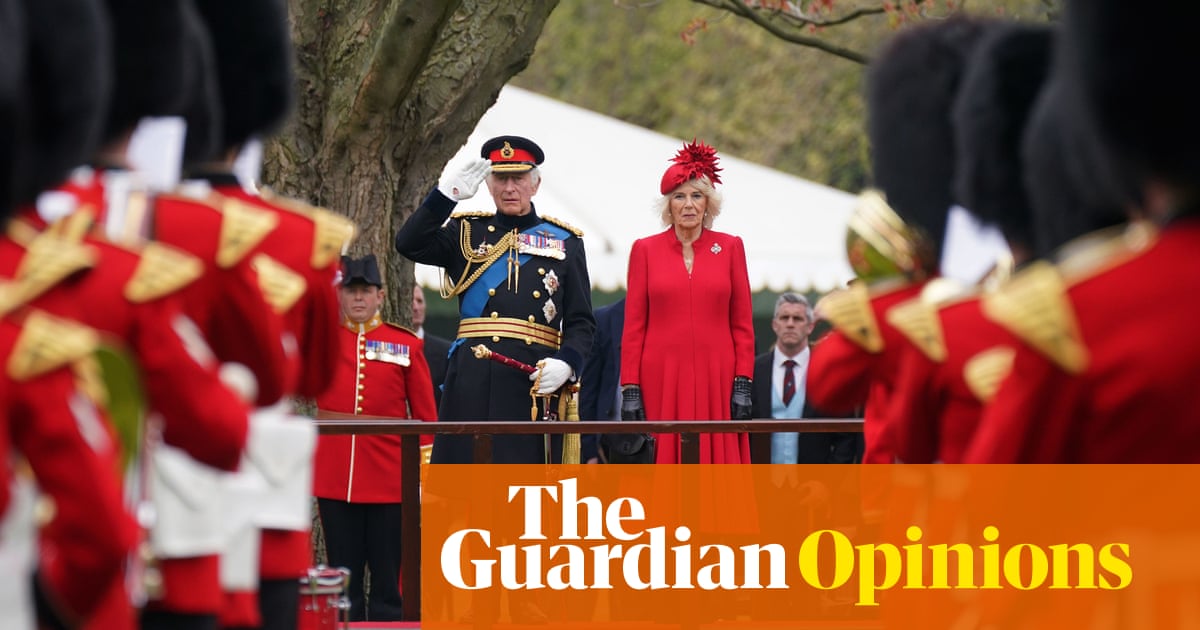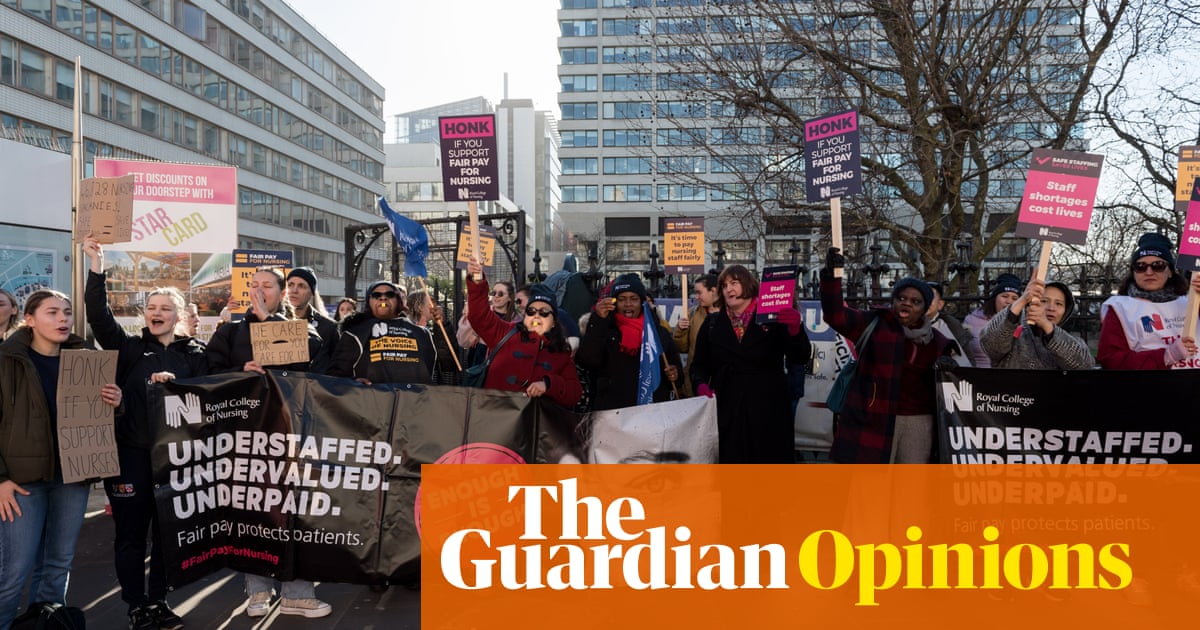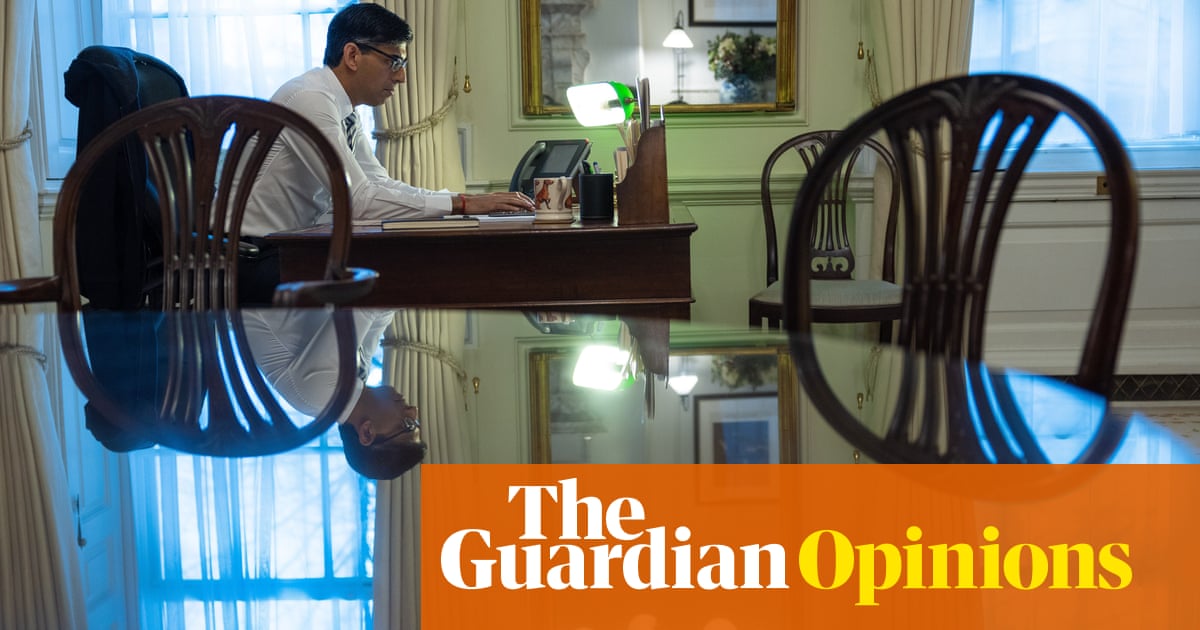
The Conservative party spent 2022 at war with itself and begins 2023 in an uneasy truce. To keep the peace, Rishi Sunak has to avoid two contentious topics: the past and the future. That doesn’t leave much room for manoeuvre.
The past is tricky to narrate without mentioning Boris Johnson, Liz Truss and the reasons why neither of them is now prime minister. Sunak can’t explain how he comes to be in charge without describing the recklessness of governments he served and discrediting the party he leads.
Most of the governing challenges Sunak faces were either caused by his predecessors or exacerbated by their negligent mismanagement. He can’t repudiate them without disinterring the grievances that his accession was meant to bury.
But without telling the story so far, a leader struggles to narrate where things will go next. That sense of a journey is what was missing from the speech Sunak gave last week setting out his agenda. There were five pledges, crafted to make short-term damage limitation sound like bold ambition.
The prime minister has promised lower inflation and shorter NHS waiting lists (taking a fairly safe punt that both are on a downward trajectory from current peaks). He wants economic growth to return and national debt to fall (as both are forecast to do), but was careful not to say by how much or how quickly.
Setting the economic bar low doesn’t guarantee that Sunak will clear it. But the greater political hazard is loaded into the pledge that looks, on paper, easiest to fulfil – an act of parliament to make migration across the Channel in small boats more illegal than it is already. That is not the same as reducing the total number of journeys – a metric that doesn’t respond to draconian statutes. The prime minister can only deliver gestures in the Commons, not results in the water.
The distinction will not impress voters who will be incensed by reports of Albanians still landing dinghies in Kent. If the law is being flouted, Sunak will hardly be able to boast that he made it stricter. The prime minister will succeed only in elevating the platform from which Nigel Farage and his tribute acts on the populist right of the Tory party denounce the government for failure to defend the nation’s borders.
Sunak’s supporters explain his pledges – “the people’s priorities” – as a device to streamline the Tory project so it might glide more smoothly into a general election campaign with memorable achievements under the prime minister’s wing. The plan is to bang on about the five-point plan with unremitting, monomaniacal discipline. The minority of people who pay close attention to politics will be bored to tears, but the much larger audience that only tunes in to Westminster occasionally will get the message that the prime minister is doing something about the issues that exercise them most.
The slimline agenda is meant to reinforce Sunak’s image as a pragmatist and a problem-solver. That branding was available to him once, when he was the fresh-faced young chancellor coping with a pandemic that no one had seen coming. But now he is the stale face of a party in power for 13 years, during which time most people’s incomes and living standards have fallen.
There is a difference between solving problems and legislating against them. The government’s proposed anti-strike law, introduced to parliament on Tuesday, is a case in point. Its purpose is to limit the rights of workers in essential public services to take industrial action. This will further poison current disputes with nurses, teachers, train drivers and others, making it harder to reach a settlement. A government that responds to trade union pressure by breaking the legal levers by which that pressure is applied is not serious about negotiation.
Conservative thinking on industrial relations has hardly evolved since the 1970s and early 1980s. It is a period Sunak, born in 1980, knows only as historic parable – the legend of Mrs Thatcher taming the red barons. But the iron lady is not still an inspiration only for 21st-century Tories, she is the last safe icon among former prime ministers.
There have been five others since her, but they are unavailable as role models, either because they failed spectacularly, sold out to Europe or both. Sunak can hardly unite his party with pledges to manage sleazy decline like John Major, embrace metropolitan liberalism like David Cameron, martyr himself to Brexit compromise like Theresa May or detonate Britain’s economic credibility like Liz Truss.
As for Boris Johnson, the political grave isn’t deep enough for Sunak to eulogise on it safely. Dozens of Tory MPs think their old boss would do a better job of protecting their seats in a general election. They talk of a resurrection, much to the horror of colleagues who recall what it was like having a prime minister with a pathological aversion to probity.
Sunak is protected and diminished by that memory. He is in Downing Street because his party preferred leaders who soiled the office. Someone had to clear up the mess. It is hardly a mandate to boast about, but if it is forgotten, the Tories’ fragile loyalty to their least-worst choice vanishes too. He has won no elections, nor even any arguments. He is neither the keeper nor the builder of a legacy, just a placeholder prime minister, averting his eyes from the past, silent on the future, marooned in the present and shrinking every day.
Rafael Behr is a Guardian columnist




